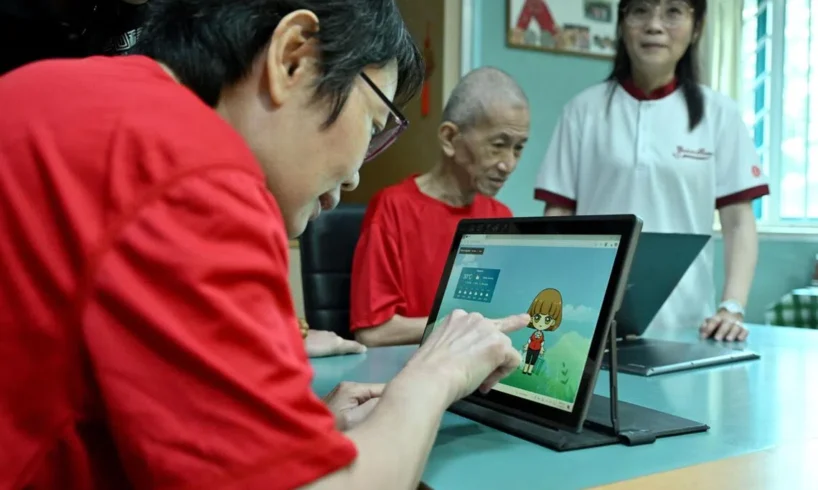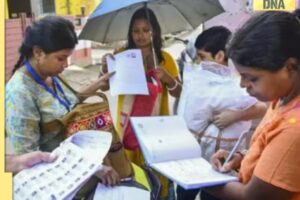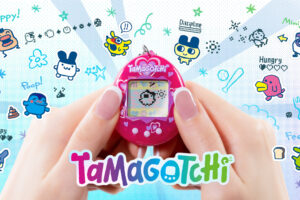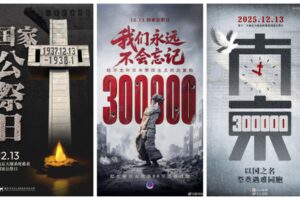
SINGAPORE – Her finger darts across the tablet, as an in-game avatar tells Ms Toh Siew Mui, 49, to choose four fruits from a table of pictures of various objects.
Another game instructs her to listen carefully and select objects that match audio descriptions. With furrowed brows and deep in concentration, she aced the game and breaks out in a smile.
Ms Toh is among residents at Bishan Home for the Intellectually Disabled who are testing games on a new app developed with Singapore University of Technology and Design (SUTD), aimed at slowing cognitive decline and providing socio-emotional support to seniors with intellectual disabilities.
The app is called Advancing Mental Invigoration (AMI) Intelli, which also features an artificial intelligence-powered conversational chatbot.
To better support its ageing residents, Bishan Home for the Intellectually Disabled is working with SUTD to develop and pilot the app, which is still in development. A memorandum of understanding was signed between the university and the home on Oct 31 at Bishan Home.
Mr Lau Wah Ming, honorary chairman of Bishan Home, said the app is the first of its kind in Singapore that is created specifically for adults with intellectual disabilities.
The app is expected to be used by residents at the home in about a year’s time.
“As our residents age, we must go beyond their physical needs or their basic needs. Our mission now is to further enhance their quality of life, to keep their minds active, their daily lives and hearts engaged, and their spirit connected to the world around them,” he said at the 27th anniversary of the home, which currently houses nearly 126 residents.
The organisation aims to provide tablets to all residents who are suited to use the app. Funding for the devices will come from various grants and the home’s internal budget.
If successfully implemented, Bishan Home hopes to work with government agencies to see how the app could benefit the wider community of seniors and adults with intellectual disabilities.
Speaking to The Straits Times, Mr Lau said one of the key issues that the home faces is the growing medical conditions and cognitive decline brought about as residents age. Most of its residents are in their 50s.
The app the home is experimenting with is built on a bilingual dementia-prevention game for seniors launched by SUTD in 2023.
The games can be personalised to meet the different needs and ability levels of adults with intellectual disabilities, Professor of Psychology at SUTD Yow Wei Quin said. For instance, the games can be played in six languages: English, Malay, Tamil, Mandarin, Cantonese and Hokkien.
“The interface is kept simple and does not include too many colours which might make it confusing for them,” Prof Yow said.
(From left to right) Professor of Psychology at SUTD Yow Wei Quin, Associate Professor of Anthropology at SUTD Lyle Fearnley, honorary chairman of Bishan Home Lau Wah Ming and vice-chairman Angeline Chua at a MOU signing on Oct 31.
ST PHOTO: DESMOND FOO
She added that the games aim to “stimulate abilities such as receptive and expressive verbal skills through familiar activities like colour matching and object dragging, with a bilingualism module for higher-functioning residents”.
Speaking to ST, Ms Toh said in Mandarin that she enjoyed playing the game and felt that the avatar – a girl figure with brown bob haircut and big brown eyes – is “cute”.
“I hope that the app will be able to teach me new things,” she said, adding that she would like to see a game with musical elements, as music helps to soothe her mood.
Another feature in the app is an AI-powered chatbot, designed to offer socio-emotional support to users, by checking in on their wellbeing. The chatbot can converse in English and Mandarin, with the researchers looking to add more languages.
The users’ conversations with the chatbot and their behaviours in the game can be also analysed, to help caregivers gauge their cognitive and socio-emotional state.
“At Bishan Home, we believe that innovation must always have a heart. Our partnership with SUTD shows how AI can be harnessed for a good purpose: to uplift lives, spark inclusion and give dignity to every person we serve,” Mr Lau said.
AgeingAI/artificial intelligenceCognitive skills/MemoryDisabilities





